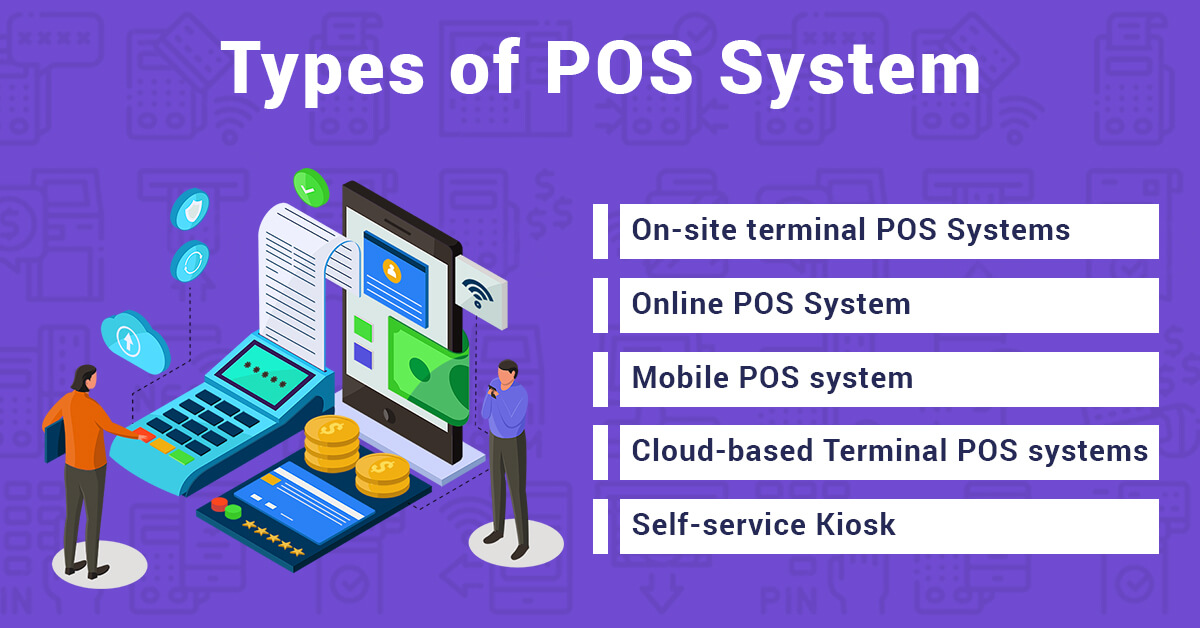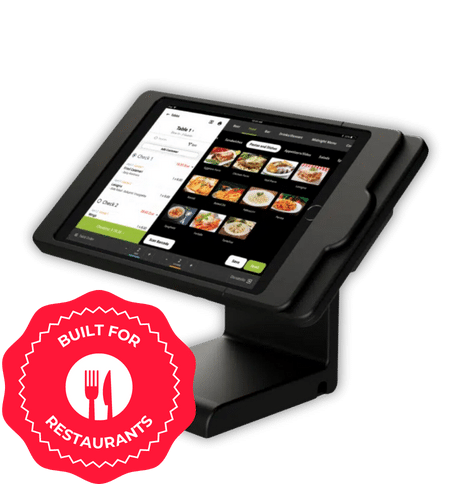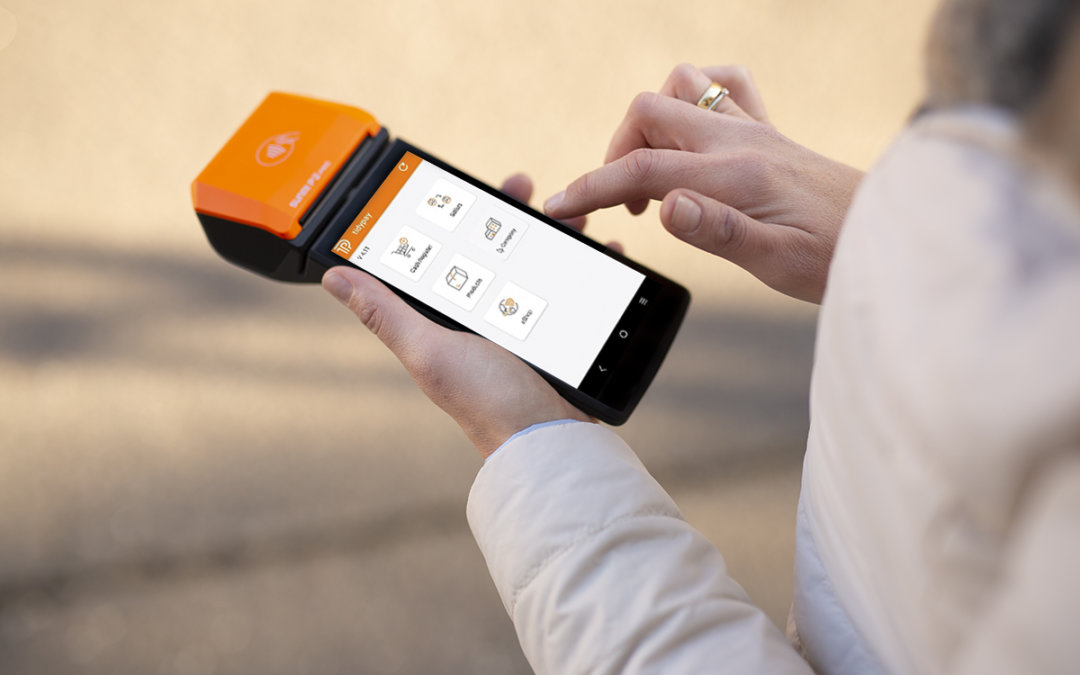Comprehending the Relevance of POS Software Application in Modern Retail Workflow
In today's retail landscape, the role of POS software program has ended up being progressively considerable. These systems have transformed from basic cash registers to complex tools that enhance various elements of procedures. They not only improve deals but likewise offer understandings that can form business techniques. Understanding how these systems impact customer experience and stock monitoring is essential for any type of merchant looking for to continue to be affordable. The effects of these developments require more exploration.
The Development of POS Software Program: From Transaction Handling to Comprehensive Solutions
As retail settings developed, so also did the performance of Point of Sale (POS) software application, which shifted from fundamental transaction handling systems to innovative, all-inclusive remedies. POS systems largely dealt with sales deals, managing cash money signs up and printing receipts. Nonetheless, with innovations in modern technology, these systems began integrating supply management, customer connection management, and sales analytics. Stores identified the requirement for real-time information and seamless operations, triggering the growth of cloud-based POS solutions that permitted remote gain access to and improved scalability.Additionally, the increase of mobile business necessitated POS systems to adapt, making it possible for transactions by means of mobile phones and tablet computers. This change not only streamlined procedures yet likewise boosted reporting abilities, allowing retailers to make enlightened decisions based upon extensive information understandings. Subsequently, contemporary POS software has come to be integral to retail strategy, offering as a multifunctional device that supports different operational elements beyond plain purchase handling.
Enhancing Customer Experience Via Advanced POS Features
While many stores concentrate on functional efficiency, advanced POS functions progressively prioritize improving the client experience. Modern POS systems now supply functionalities such as mobile payment alternatives, customized promotions, and consumer commitment programs, which foster a more engaging shopping atmosphere. By improving the checkout process, these systems minimize wait times, enabling consumers to total purchases quickly and efficiently.Additionally, incorporated client partnership administration (CRM) features make it possible for sellers to track purchasing choices and habits, helping with customized advertising initiatives. This customization not only develops consumer loyalty however additionally enhances general satisfaction.Moreover, progressed analytics offered by POS systems can aid sellers recognize consumer trends and choices, permitting them to make educated choices about item offerings and shop layouts. Inevitably, the concentrate on consumer experience via advanced POS includes not only satisfies modern consumer assumptions yet likewise drives repeat service and increases revenue for merchants.
Enhancing Supply Management With Integrated POS Systems
Integrated POS systems play a crucial role in improving stock administration by automating procedures that traditionally required significant manual effort (Restaurant POS Software). These systems enable sellers to track inventory levels in real time, eliminating inconsistencies that usually arise from hands-on supply matters. With functions such as barcode scanning and automated supply replenishment signals, businesses can maintain optimal inventory levels without overstocking or stockouts.Furthermore, incorporated POS systems promote accurate projecting by assessing historic sales data, allowing sellers to make informed acquiring choices. This predictive capability helps businesses adapt to transforming consumer needs and seasonal patterns much more effectively.Additionally, the centralization of supply data across numerous sales channels enhances exposure, enabling merchants to manage their stock more successfully. Inevitably, the combination of POS systems right into stock monitoring streamlines procedures, decreases human error, and adds to enhanced success
Real-Time Sales Tracking and Coverage for Informed Decision-Making
Precise supply management lays the groundwork for efficient sales tracking and coverage. Real-time sales tracking makes it possible for merchants to keep track of sales performance as it takes place, giving prompt insights into consumer acquiring patterns and fads. This capacity allows companies to respond quickly to changes in demand, enhancing stock levels and reducing overstock or stockouts.Moreover, incorporated POS systems help with the generation of comprehensive records, highlighting key metrics such as sales by classification, period, and individual products. Such coverage capacities empower merchants to make data-driven decisions, determining successful techniques and locations needing improvement.

The Duty of POS Software Program in Customer Connection Monitoring
POS software application plays a crucial function in boosting customer connection management by allowing retailers to carry out customized marketing approaches. By examining customer information, organizations can customize interactions and promotions to satisfy specific choices. Additionally, these systems help with the growth of enhanced loyalty programs that motivate repeat service and reinforce consumer involvement.
Personalized Advertising Methods
As stores progressively look for to boost customer loyalty and interaction, individualized advertising and marketing approaches have actually become an important element of efficient client partnership management. POS software program plays an important function in this process by collecting and analyzing customer information, making it possible for merchants to tailor marketing initiatives to private preferences and buying actions. By leveraging insights from purchase histories, sellers can produce targeted promotions and individualized communications that resonate with consumers, promoting a deeper connection. Furthermore, the combination of POS software application with consumer partnership administration systems allows for seamless monitoring of consumer interactions, making sure that advertising strategies remain pertinent and timely. This data-driven approach not only boosts customer satisfaction yet additionally drives sales and motivates repeat business, solidifying the store's market placement.
Improved Commitment Programs
Stores are significantly identifying the relevance of loyalty programs in cultivating lasting consumer partnerships and boosting general engagement. POS software program plays an essential role in the development and management of these programs, allowing stores to track client purchases, behaviors, and choices properly. By leveraging information analytics, companies can develop tailored incentives and motivations that resonate with individual customers, therefore increasing engagement in loyalty programs. Additionally, POS systems make it possible for smooth assimilation with mobile applications and electronic platforms, assisting in very easy accessibility to promotions and incentives. This not only boosts consumer complete satisfaction yet additionally drives repeat business. Eventually, POS software application empowers sellers to grow much deeper connections with their customers, changing periodic consumers right into devoted clients through targeted and significant involvement methods.
Integrating POS Systems With Ecommerce Operating Systems for Omnichannel Success
To accomplish true omnichannel success, smooth integration between point-of-sale (POS) systems and ecommerce platforms is crucial. This combination permits stores to merge their inventory management, ensuring that item availability is precisely mirrored across both online and physical stores. Consumers benefit from a natural buying experience, check my site where they can easily change in between networks without experiencing discrepancies.Furthermore, incorporated systems help with real-time data sharing, allowing businesses to analyze consumer habits and preferences more efficiently. This data-driven approach enables sellers to tailor marketing approaches and enhance stock degrees, eventually improving customer fulfillment and driving sales.Additionally, the capacity to process transactions across platforms simplifies procedures, reducing the threat of errors and improving total effectiveness. As retailers increasingly embrace omnichannel techniques, the assimilation of POS systems with ecommerce systems stays a critical variable in accomplishing sustainable development and preserving affordable advantage in the vibrant retail landscape.

Future Patterns in POS Technology and Their Effect On Retail Procedures
As visit this website retail operations evolve, future fads in POS modern technology are set to reshape the landscape substantially. The rise of cloud-based solutions, developments in mobile POS systems, and the advantages of AI assimilation are amongst the essential advancements prepared for to boost performance and customer experience. These developments guarantee to enhance processes and promote an extra dynamic retail setting.
Cloud-Based Solutions Rise
With the raising dependence on innovation, cloud-based POS options are changing retail operations by providing enhanced flexibility and scalability. These systems enable sellers to access real-time data from anywhere, helping with much better decision-making and customer care. By leveraging cloud infrastructure, companies can decrease upfront costs connected with software and hardware installations while making sure smooth updates and maintenance. Additionally, cloud-based services sustain multi-location monitoring, enabling sellers to synchronize supply and sales across various electrical outlets easily. This versatility is crucial in today's fast-paced market, where customer preferences shift swiftly. As even more sellers adopt these solutions, they can anticipate improved operational performance and an extra responsive strategy to market demands, inevitably enhancing customer fulfillment and loyalty.
Mobile POS Innovations
The evolution of retail modern technology remains to form procedures, particularly with the surge of mobile POS innovations. These systems enable merchants to refine purchases anywhere within the store, improving client interaction and improving checkout procedures. Mobile POS services improve stock monitoring by enabling instantaneous accessibility to stock degrees, aiding team assist customers much more efficiently. In addition, they promote customized shopping experiences with incorporated client data and loyalty view website programs. As smart phones come to be progressively innovative, sellers are embracing functions such as contactless repayments and electronic invoices, in addition enhancing the buying trip. The shift in the direction of mobile POS not only improves operational performance but additionally aligns with the growing customer preference for ease, making sure that sellers stay competitive in a quickly evolving market.
AI Integration Advantages
AI assimilation stands for a transformative leap in POS technology, offering retailers a myriad of benefits that improve functional efficiency and client experience. By leveraging equipment understanding algorithms, stores can analyze purchasing patterns and enhance stock monitoring, reducing waste and stockouts. In addition, AI-powered analytics give individualized marketing suggestions, making it possible for targeted promos that boost consumer interaction and loyalty (Restaurant POS Software). In addition, chatbots and digital aides streamline customer support, permitting quicker resolution of questions and boosting the overall purchasing experience. Anticipating analytics can additionally anticipate need trends, making it possible for smarter staffing and source allocation. Ultimately, the integration of AI in POS systems encourages stores to make data-driven decisions, fostering an one-upmanship in an ever-evolving retail landscape
Often Asked Questions
What Are the Expenses Connected With Implementing POS Software Application?
The costs connected with implementing POS software can include software application licensing costs, hardware expenditures, installment fees, training prices, and ongoing maintenance. Each aspect adds to the general investment needed for an effective execution.
Just How Can Tiny Retailers Take Advantage Of POS Systems?

What Equipment Is Needed for a POS System?
A typical POS system calls for important hardware parts, including a touchscreen display, money cabinet, barcode scanner, invoice printer, and repayment terminal. These elements work together to assist in reliable transaction processing and supply administration for retailers.
Can POS Software Application Be Custom-made for Specific Retail Requirements?
POS software program can indeed be personalized to fulfill specific retail requirements. This adaptability enables companies to customize features, interfaces, and reporting tools, boosting operational effectiveness and giving a more personalized experience for both team and customers.
Exactly How Protected Is Consumer Information in POS Systems?
The protection of customer information in POS systems varies extensively. Several systems execute security, safe and secure access controls, and normal updates, yet vulnerabilities can still exist, necessitating ongoing caution and positive steps from sellers to secure sensitive info. By streamlining the checkout process, these systems reduce wait times, permitting consumers to total deals quickly and efficiently.Additionally, integrated consumer partnership monitoring (CRM) functions allow sellers to track purchasing actions and choices, helping with tailored advertising efforts. As merchants increasingly look for to boost client commitment and engagement, customized advertising strategies have arised as an essential part of effective consumer partnership management. Additionally, the combination of POS software application with client partnership monitoring systems allows for seamless tracking of customer interactions, ensuring that marketing strategies stay timely and pertinent. Clients profit from a natural buying experience, where they can easily switch over between networks without running into discrepancies.Furthermore, integrated systems facilitate real-time information sharing, allowing companies to assess consumer habits and choices more successfully. Tiny sellers can profit from POS systems via enhanced deal efficiency, streamlined supply monitoring, and improved client understandings.